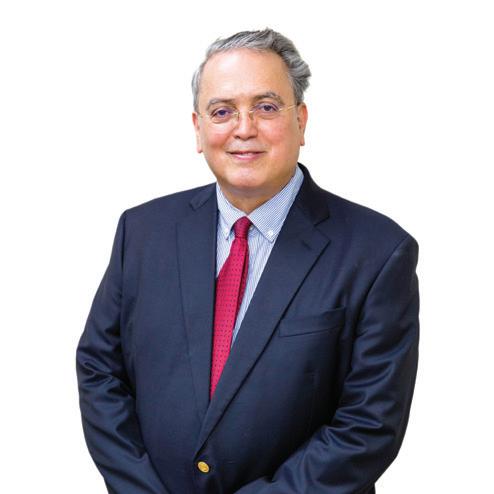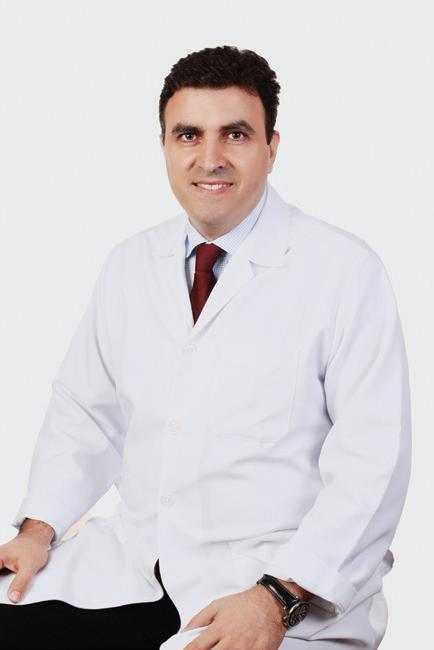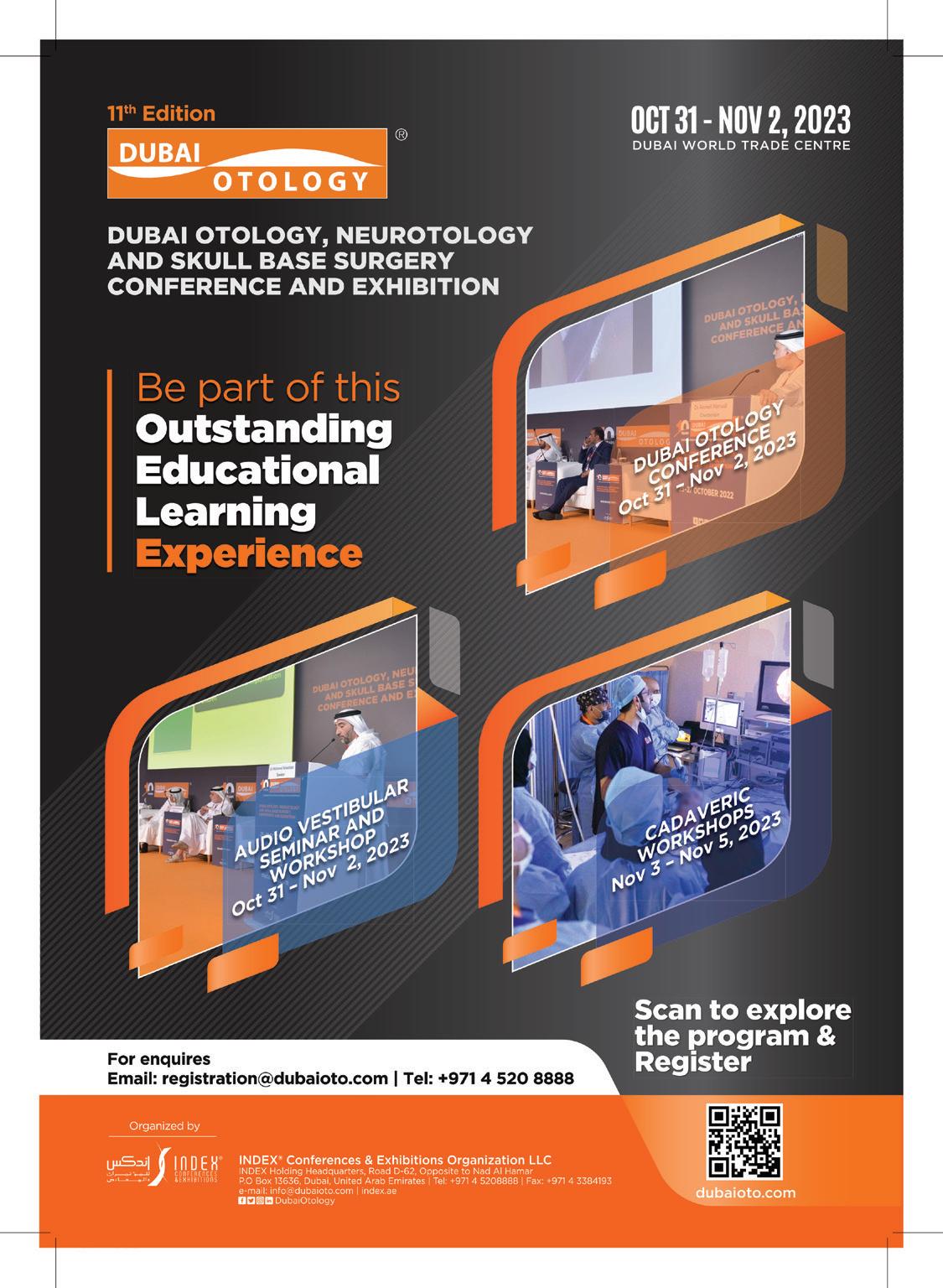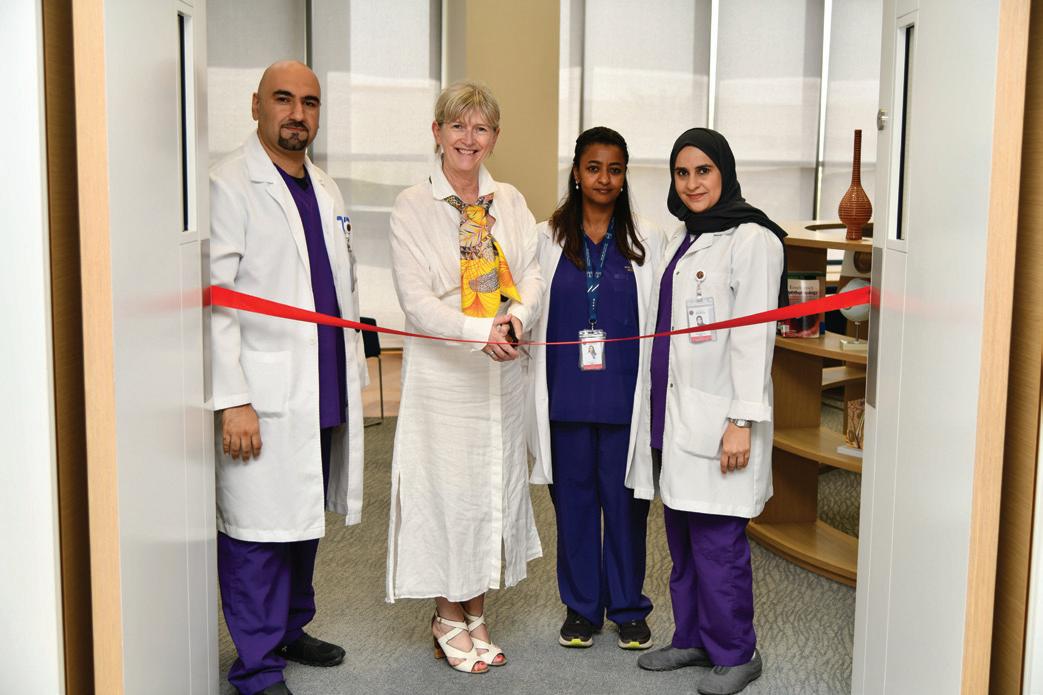
6 minute read
middle east monitor Update from around the region
In Middle East first: KFSH&RC implants
Brain Electrodes In Child To Detect Epileptic Foci Without Surgery
The Neuroscience Center of King Faisal Specialist Hospital and Research Center (KFSH&RC) in Riyadh has implanted, for the first time in the Middle East, brain electrodes in an 11-year-old child without the need for surgery. This groundbreaking non-invasive procedure, utilizing the cutting-edge stereoelectroencephalography (SEEG) technique, was performed on a boy with drug-resistant epilepsy (intractable epilepsy). The goal was locating the epileptic foci in the brain, paving the way for their future removal.
The advanced technique of stereoelectroencephalography utilizes minimally invasive procedures and involves creating tiny 2mm holes in the skull to implant electrical monitoring electrodes directly into the brain. These electrodes enable precise measurement and mapping of electrical activity, allowing specialists to identify the specific regions where epileptic seizures originate.
Dr Ibrahim Althubaiti, a consultant at the Epilepsy Integrated Practice Unit at KFSH&RC, highlighted the distinct challenges of carrying out such a medical procedure on children instead of adults. Unlike adults who can easily comply with instructions, children’s movement, Althubaiti explained, can be challenging to control for prolonged periods, posing a greater difficulty in executing the medical procedure. “Nevertheless, the successful implementation of the SEEG technique allowed us to overcome this challenge,” he said.
After placing the electrodes, the patient is closely monitored for several days to meticulously identify the origin of the seizure and determine the specific tissues that need to be removed or excised to eliminate epilepsy seizures effectively. This approach ul- timately improves a patients’ quality of life and that of their families.

Moreover, the technique stands out for its efficiency, cost-effectiveness, and accelerated recovery. The medical procedure takes just 45 minutes, with no more than 48 hours of recovery. Notably, the cost is reduced by 60% compared to the previous procedures, which involved temporarily removing a substantial part of the skull to access the brain for electrode placement. This prior surgical procedure lasted for nine hours and carried the risks of pain, infections, and potential complications from anaesthesia.
The KFSH&RC Neuroscience Center offers top-quality care for adult and paediatric patients suffering from complex and febrile epilepsy. The centre boasts a team of highly skilled doctors and surgeons spe- cializing in epilepsy care, utilizing state-ofthe-art diagnostic techniques and surgical interventions. The centre has made a remarkable global achievement by successfully conducting a hemispherectomy on the world’s youngest infant, only 14 days old, to treat severe and intractable epilepsy. Before the surgery, the child had experienced complete anaesthesia and unconsciousness. However, thanks to the groundbreaking procedure, the child has fully recovered.
This accomplishment is a testament to KFSH&RC’s ongoing commitment to harnessing all available resources and incorporating pioneering technologies to enhance patient outcomes, optimize operational efficiency, and establish itself as the preferred option for specialized healthcare services.


Dubai’s Mediclinic City Hospital one of region’s leading organ transplant centres
Dubai’s Mediclinic City Hospital’s transplant centre, established in 2018, has grown to become one of the leading centres for organ transplants in the region.
Led by Dr Waldo Concepcion, Dr Ramzi Abou Ayache and a team of specialists, the centre has been a pioneer in the field of transplant surgery and has transformed the UAE organ transplant landscape. To date, 37 solid organ transplants, the highest number in Dubai, have been carried out on adults with a 100% graft and patient survival rate.
Dr Concepcion said: “Our vision is for Mediclinic City Hospital to be a beacon of hope for transplant surgeries, not only in Dubai but internationally.”
The transplant centre offers patients suffering from end-stage renal disease an alternative to dialysis, which in turn provides them a better quality of life. Both deceased donor and live donor transplants are per- formed at the transplant centre, offering families the opportunity to explore the op tion of being a live kidney donor.
Mediclinic City Hospital is focused on patient-centred care. Fatima Rashid Schmit who underwent a kidney transplant at Mediclinic City Hospital in January 2023, felt very assured throughout the process. She said: “The team explained to me the clinical aspect of the surgery, the post op and the recovery. The staff was friendly and compassionate and attentive to my needs.”
The transplant centre’s multidisci plinary team of experts includes a cardiol ogist, psychologist and gynaecologist who collaborate with the transplant team to give patients the best quality care avail able. After the transplant procedure, it continues to support patients with an extensive follow-up and post-transplant care programme.
• For more information, visit: https://www.mediclinic.ae/en/city-hospital/specialized-units/Transplant-Centre.html
Fakeeh Care Group integrates Wolters Kluwer’s UpToDate in YASASII EMR clinical workflow
Wolters Kluwer Health, a global provider of clinical technology and information, software, and services for healthcare professionals, has integrated its UpToDate clinical decision support (CDS) in Fakeeh Technologies’ YASASII electronic medical record (EMR) system. Fakeeh Care Group, a leading healthcare network in the Middle East, has now integrated the CDS at three hospitals in Saudi Arabia and the United Arab Emirates.
Dr Ziyad Alharbi, Group Executive Director, Academic and Training Affairs at the Fakeeh Care Group said: “Having easy access to all patient information and medication details through the UpToDate Infobutton with just one click definitely increases efficiency.”
Garry Edwards, Clinical Effectiveness
Vice President for EMEA at Wolters Kluwer Health, added: “The integration of UpToDate into YASASII will help align medical practice with the best evidence, while improving the clinical workflow and quality of patient care.”
Founded in 1978, the Fa keeh Care Group provides comprehensive secondary and tertiary services in Saudi Arabia and the UAE, with an emphasis on preventative healthcare. The integration of UpToDate into the hospi tals’ EMR supports the Fakeeh Care Group’s goal of provid ing world-class healthcare to its patients. The integration is now in place at three hospitals: the Dr. Soliman Fakeeh Hospi tals in Jeddah and Riyadh, and Fakeeh University Hospital in Dubai.

Dr Mazen Fakeeh, President and Chairman of the Board of the Fakeeh Care Group, commented: “The Fakeeh Care Group is more than just a hospital group; it also acts as an academic hospital with undergraduate and postgraduate programmes. The reason we chose UpToDate is to ensure that we have the latest updated clinical information available to our clinicians and students, especially as it is crucial for the quality of education and patient care we provide. As a nationally and internationally accredited organization, we also need to have access to the most current and reliable information to maintain our high standards of care.”






Royal College of Physicians of Ireland opens examination centre in Bahrain
The Royal College of Physicians of Ireland (RCPI) has opened a new clinical exami nation centre in the Crown Prince Centre for Training and Medical Research, Bah rain. This state-of-the-art facility provides RCPI with an ideal location to conduct its exams and strengthens the partnerships between the Crown Prince Centre for Training and Medical Research, Bahrain and RCPI.
As the RCPI grows its presence in the Middle East, this strategic expansion marks a significant milestone for RCPI as it responds to the ever-increasing de mand for highly skilled and trained medi cal personnel across the Gulf being driven by factors such as ageing populations and the rising prevalence of chronic diseases. Healthcare spending in the GCC is ex pected to reach $135.5 billion in 2027, increasing by 5.4% per year from 2022, with Bahrain expected to see a CAGR of 6.1%, according to recent research from Alpen Capital.
The newly established examination cen tre in Bahrain showcases RCPI’s commit ment to advancing medical education and providing exceptional postgraduate training opportunities for doctors looking to upskill. This aligns with RCPI’s strategic objective to be globally active, increasing its presence across the world and growing international membership, collaborating and sharing knowledge and expertise across borders.

Prof. Mary Horgan, President of RCPI, said: ”There is an enduring and strengthening bond between Ireland and Bahrain which is reflected in the opening of our new centre. It is a true honour for us to have Bahrainis who have graduated from our esteemed training programmes serve as convenors for these examinations. As an Infectious Diseases Consultant, the pandemic underscored the significance of collaboration among medical professionals and the advantages of tapping into an international network.
“Becoming a member of RCPI offers doctors unparalleled professional develop- healthcare environments.”

Brig. (Prof.) Fahad bin Khalifa AlKhalifa, Commander of the Royal Medical Service of the Bahrain Defence Force said: ”We are so excited to host and be the exclusive hub for the MRCPI exam in the Kingdom of Bahrain like we are for the court of examiners of the MRCSI intercollegiate exam. This will elevate our young colleagues practice both locally and regionally and hopefully open up new horizons for more collaboration with the Royal College of Physicians in Ireland.”
RCPI’s expansion in Bahrain marks a significant milestone in the college’s ongoing commitment to enhancing medical education and delivering excellence in
Doctors who pass the rigorous examinations will be conferred as Members of the Royal College of Physicians of Ireland, joining an esteemed global network of 13,000 RCPI member doctors, gaining recognition for their expertise and improving their employability across the globe.
RCPI started holding examinations in the Gulf Region in 2004 and already has examination centres in Dubai in the UAE, Muscat in Oman and Riyadh in Saudi Arabia.
RCPI has a tremendous presence in the Gulf region, with over 1,200 doctors currently holding membership. Additionally, it has proudly produced 180 graduates from its training programmes in the Gulf region.










